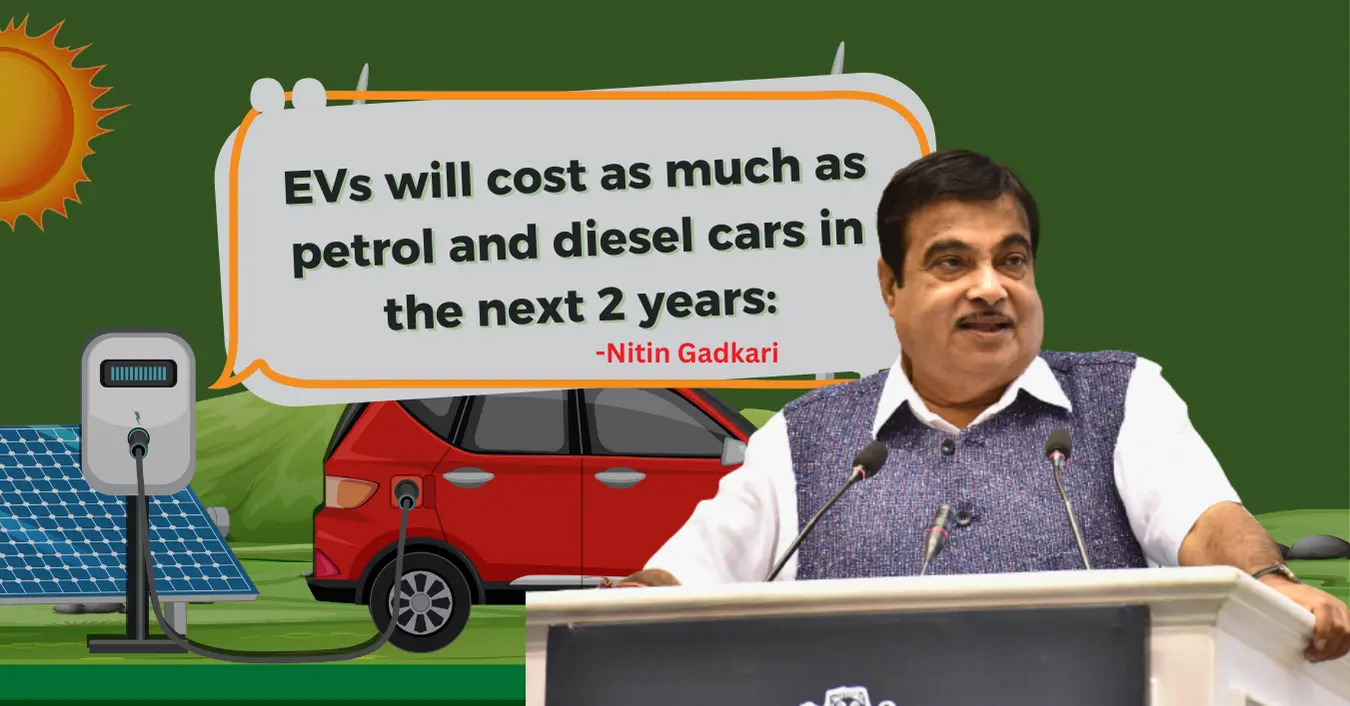
The Transport Minister highlighted the rapid reduction in production costs and consumers’ growing preference for EVs and CNG vehicles.
Despite previously suggesting that EV subsidies were no longer necessary, Gadkari emphasized his openness to continuing subsidies during this transitional period.
Reflecting on the past decade, Gadkari noted how Indian automobile manufacturers initially dismissed his push for electric vehicles.
However, the industry’s stance has dramatically shifted, with major companies now recognizing the importance of EVs in their future strategies.
Gadkari further emphasized that incentives for electric vehicles might not be necessary in two years, as the cost of EVs is expected to be equal to that of petrol and diesel vehicles.
Despite this, he remains open to supporting any additional incentives during the ongoing transition, allowing for a smoother adoption of electric mobility.
This aligns with the government’s broader vision of promoting sustainable transportation in India.
The minister also highlighted India’s competitive advantage in the automotive sector, driven by low labor costs, high-quality production, and rapid technological advancements.
These factors are expected to play a crucial role in the country’s transition towards electric mobility, further strengthening its position in the global market.
In 2023, the electric vehicle (EV) market in India saw a notable increase in market share, rising to 6.3% from pre-pandemic levels of under 1%. The growth spanned across various segments:
Projections suggest that the EV market will grow significantly over the next few years, with an expected compound annual growth rate (CAGR) of 49% between 2022 and 2030.
By 2030, EVs are anticipated to constitute nearly one-third of India’s total passenger vehicle sales.
This rapid growth in the EV market aligns with the prediction that electric vehicle prices will match those of petrol and diesel cars within the next two years.
With government policies supporting this transition, achieving price parity of electric vehicles with that of ICE vehicles within two years may be possible for India.
This post was last modified on September 9, 2024 3:47 pm
In a major stride toward sustainable mobility, the Himachal Pradesh Police have incorporated six custom-modified Tata Curvv electric vehicles into…
In India, the automotive and transport industry is undergoing significant changes. This transformation isn't just about improving roads and infrastructure;…
Montra Electric, the clean mobility brand from the prestigious Murugappa Group, has launched the All-New Super Auto, a next-generation electric…
Union Minister Nitin Gadkari (Minister of Road Transport and Highways of India) has once again made a bold statement that’s got…
India’s electric four-wheeler (E4W) market slowed in September 2025, following a record-breaking August, with 15,038 units sold, representing an 18%…
India’s EV market hit 1,04,056 electric two-wheeler sales in September 2025. TVS, Bajaj, and Ather led the chart, while Ola…
This website uses cookies.